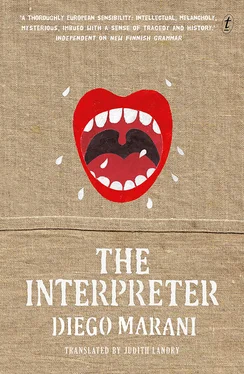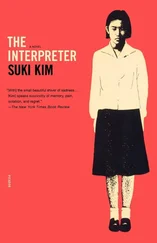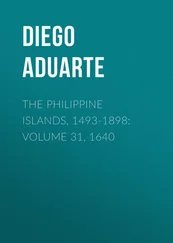I was having trouble grasping the nature of this obscure malady which Ortega was outlining to me with such learned ease.
‘But why does anything need to be done at all? At his age, surely the colonel could be left in peace?’ I asked, perplexed.
‘Not really. Because it was with age that Kwiatkowski was beginning to give signs of mental imbalance — the first hints of some linguistic disorder, albeit apparently quite harmless. He was mixing up his words, talking an impenetrable language all his own. Then, four years ago, during a hunting party with some other NATO officers, he started shooting wildly at his fellow hunters, shouting ‘Surrender, bunch of queers!’ in every language known to him — one English lord actually perished in the fray. Since then, he’s been in here…’
I glanced in Kwiatkowski’s direction: sitting bolt upright in front of the laid chessboard, he was twiddling a bishop between his fingers as though it were some delicate insect which had just alighted on his hand.
‘The most difficult person at our table is undoubtedly the Belgian, Vandekerkhove. He just can’t help himself; he ruins every conversation with ill-judged remarks, picking on insignificant details, and since no one pays any attention, he ends up talking to himself. But that’s certainly to do with his illness,’ Ortega confided sotto voce , eager to carry on, assured of my interest by my look of curiosity.
‘Vandekerkhove is bilingual, but he can’t distinguish French from Dutch: when he finds himself among French speakers he talks Dutch, and vice versa. His ego has learned to solve this problem by mimetic behaviour: unconsciously sensing that the language he’s using is not the one that’s needed, but incapable of putting things to rights; he translates one word after another as he talks, and the result is incomprehensible bluster. Barnung is trying to cure him with an intensive course in German; he’s trying to ferry his identity to safety on the raft of an emergency language; only when Vandekerkhove’s identity is secure will he be able to proceed to the reconstruction of his two native tongues. But it seems that he’s resistant to this cure and is learning a bastardised German; you’ll hear it when you talk to him. It’s a German that’s been translated from something else, but Barnung can’t find out what from, not even with hypnosis! It seems that by now Vandekerkhove is translating from some buried language of his own, one that he doesn’t even know he knows, and in which he takes refuge in moments of stress.’
‘And what about the other one?’ I asked my well-briefed informant, referring to the third member of our dining-room coterie, the one who had been sitting in silence to my left.
‘Vidmajer? He’s a Slovene who grew up in a German-speaking community deep in the Argentinian pampas. The first time he left home to do his military service, he lost the power of speech. I think that the cure that Doctor Barnung has devised for him is his last hope; he’s doing an intensive course in Spanish, with German as back-up. But he’s still as silent as the grave; all he can do is repeat the phrases on the beginners’ tape, and they’re not much help in civilised conversation!’
Ortega seemed gratified by my expressions of amazement; he lowered his eyes and stretched out in his armchair, clasping his hands over his stomach.
We sat in silence for a few minutes, watching the fake twins busying themselves around the billiard table; the card-players had quietened down, a cloud of purple smoke rising above their table. The two opera singers were smiling at one another, putting their cards down with ceremonious little bows. Ortega picked up some newspapers, leafed through them distractedly and replaced them in the rack.
‘May I offer you a digestif?’ he asked me after a pause, summoning the waiter; I accepted his offer readily and drank to my hospitalisation in Dr Barnung’s clinic of linguistic therapeutics with a glass of Jägermeister.
I was the only patient doing an intensive course in Romanian. The following morning I went into the sun-filled laboratory, sat down in the front row and slipped on the headphones, while the nurse threaded up the spool.
‘Just breathe normally — at first you’ll just be listening, trying to give yourself over to the sounds. Then you can start repeating them, but only when you see the red light go on.’ I did as I was told. I half-closed my eyes, and when at last I heard my own voice resonating, I hardly recognised it: those soft consonants, those lingering vowels startled me, took me out of myself. The session went on for two hours, and when it ended I felt as though I was awakening from a drugged sleep; I was breathless and exhausted. The nurse accompanied me back to my room, lowered the blinds and handed me a bottle of green liquid.
‘Gargle with this for at least two minutes — it’s sulphurated water. Then go to bed — what you need to do now is sleep. In the afternoon we’ll have a session concentrating on breathing and intonation; I’ll see you at six, in the gym, and that will be it, for today. Tomorrow we’ll start on the supplementary German.’
I fell asleep instantly, and slept as I had not slept for months; I awoke thoroughly refreshed, my mind clear as a bell. At lunch, I was alone at table; the nurse told me that my companions had already eaten. Taking a couple of books from the library, I went back to my room, but fell asleep again. There were about a dozen of us in the gym, taking various preparatory language courses. I noticed someone wearing a red uniform and nodded in their direction, but the red strip on my own jacket pocket caused people to lower their eyes after initial interest. In unison, after the nurse, we repeated voiced consonants and more or less open vowels, and ended with an exercise in tone, based on a Chinese ideogram painted on a panel hanging from the ceiling. Those three syllables echoed inside my head throughout the night, and I awoke at dawn with the sensation that I had been engaged in non-stop sleep-talking.
There were others with me on the German course: Vidmajer, Mrs Popescu and one of the fake twins. It was only on Tuesdays that I would meet up with Ortega, and here our exercises were less monotonous: we had to repeat prose passages or bits of rhyming verse which I ended up knowing by heart. After those first days in the laboratory, I also had several sessions of linguistic hypnosis, under the supervision of Dr Barnung himself. He sat me down in a special studio with soundproof walls, all painted black, with daylight filtering in through a skylight of frosted glass; three series of Altaic diphthongs were played through a loudspeaker, and I had to repeat them until I fell into a trance, then he stood behind me and questioned me in French. I never knew what he hoped to discover with those sessions, but each time he looked thoroughly satisfied with the result.
Six weeks went by in this way. Romanian was making some headway in my brain, and I also began active language sessions, when I had to answer a series of questions using the vocabulary I had memorised. I was now beginning to feel strangely serene; I saw learning Romanian as my salvation and, as things were going, salvation did indeed seem to be within my grasp. All that I had to do was speak, keep speaking, and allow my voice to lead the way. Just as Dr Barnung had foreseen, words were carving out sure banks between which the juices of my brain could flow without mingling, the backward-flowing waters of distress and fear now far from the pure sources of my new-found thoughts. Right from the very first sessions, my crises became less frequent and ultimately almost ceased altogether, though I was still surprised by the occasional attack, particularly in the morning, when I woke up. ‘That is when linguistic awareness drops its guard,’ the doctor explained to me. ‘Emerging from the night has always been a problem for man. In the void of sleep, consciousness loosens up, the ego loses its weight and rises through the air like a balloon, becoming reunited with the vague pulse from which it came; and at that moment all that keeps our paltry identity in place is a thin plastic film. That’s why, when you wake up, the first thing you must do is speak; any language whatsoever, even French, will immediately restore your identity to you, sickly though it may be. Words, your own voice, which distinguishes you from a billion others, will pull the fragile bubble of your identity back down to earth like a stone.’
Читать дальше












